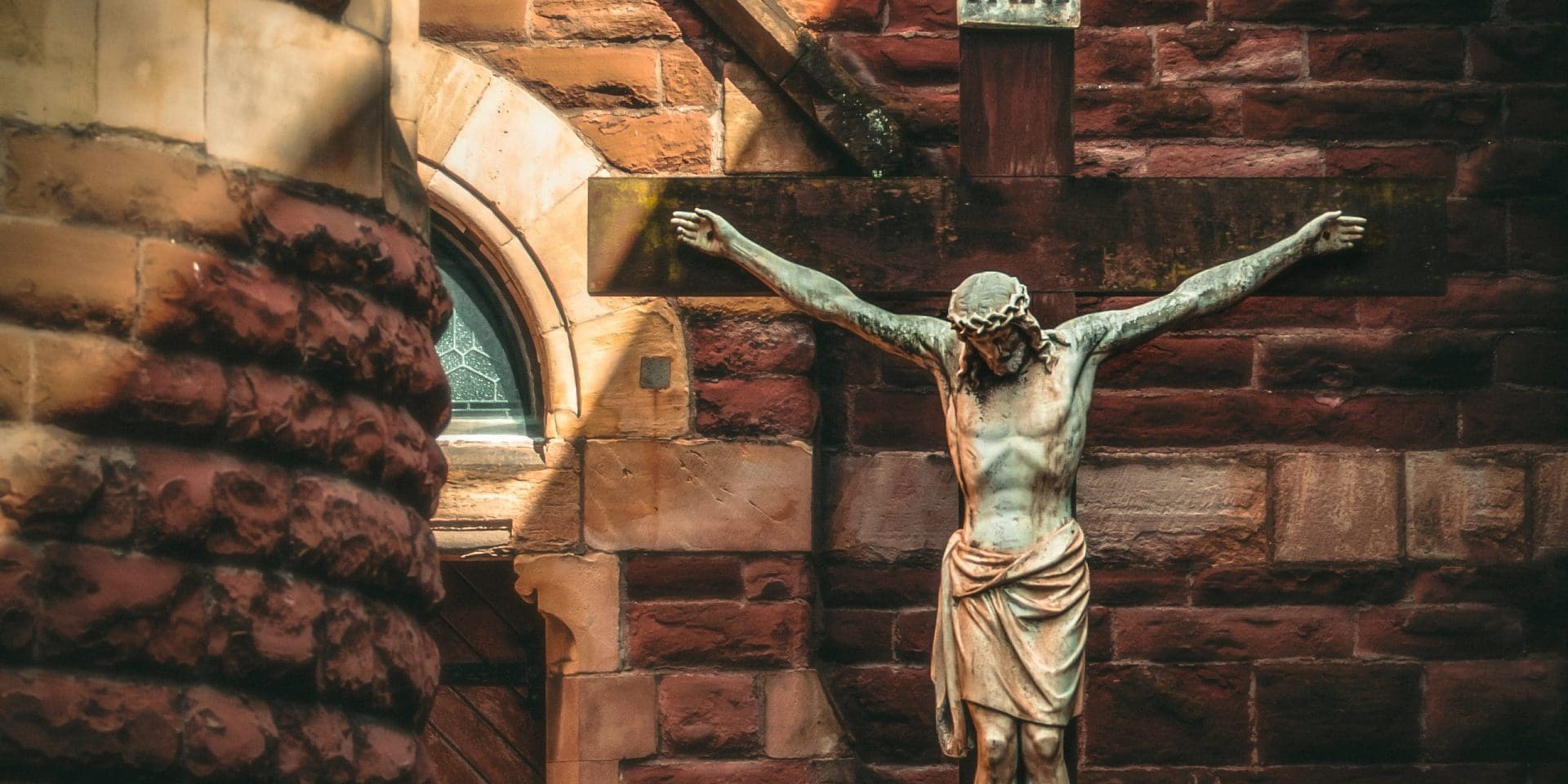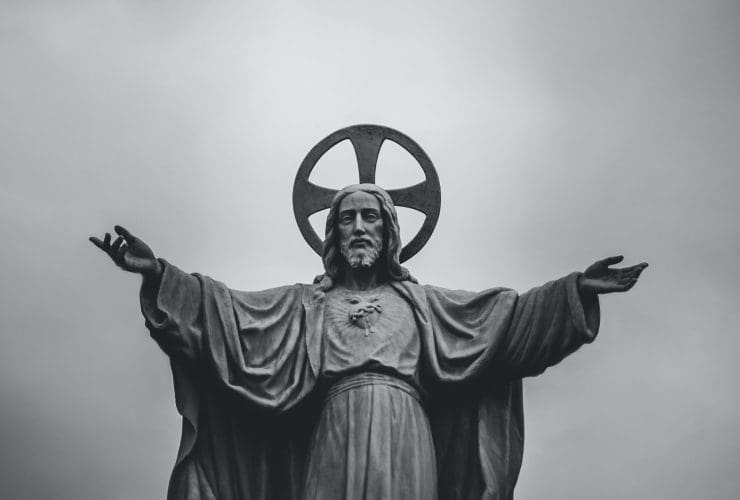Q:
“How is it Moses commanded Old Testament sacrifices (Ex 29:18), but others, even God, deny them? (Psa. 40:6; 51:16; Isa. 1:11-15; Jer. 6:20, Hos. 6:6). What is the point of asking for sacrifices if God does not then want to receive them?”
Hannah
Hello Hannah, I hear what you are trying to say, but there are a couple things to really reconsider here. And it has to do with the context of why God is rejecting the sacrifices, and why God established the Law in the first place.
It sounds like the question is worded to pit Moses against God. This is not so. Moses was a prophet of God. As a prophet, Moses was speaking on behalf of God and instituted the sacrificial laws (often called ceremonial laws today) because he was “carried along by the Holy Spirit” (2 Peter 1:21). If Moses said or instituted something on behalf of God that God did not want to say or do, as if it was God’s command, he would be a false prophet. False prophets must be stoned according to the Mosaic Law. Do you see the dilemma being made here? Moses was not just stringing arbitrary rules and rituals together. He was not making laws for the sake of making law, nor did Moses expect you to sacrifice for the sake of enacting the law alone (cf. Deuteronomy 10:16, 12-17).
In the Scripture references you listed, God does not receive the sacrifices because their heart is not right: unrepented, faithless, loveless, and hardened. For instance, in Psalm 40:6, just two verses down, the Holy Spirit says, “I delight to do your will, O my God; your law is within my heart.” Or one verse down from Psalm 51:16, “The sacrifice acceptable to God is a broken spirit; a broken and contrite heart, O God, thou wilt not despise.” (v.17) It is not that the Law is somehow useless or incredulous, it is just void if the heart is not in it. But any kind of works, rituals, or practices without faith are useless. It is through faith that people believe and repent (Romans 9:9-10; Acts 15:9) and obtain a “heart of flesh” (cf. Ezekiel 36:26-27; 2 Corinthians 3:3). That is what God desires most. As Ezekiel says, “I will give you a new heart and put a new Spirit in you; I will remove from you your heart of stone and give you a heart of flesh. And I will put my Spirit in you and move you to follow my decrees and be careful to keep my laws.” In other words, he’s rejecting sacrifices for the sake of sacrifices, he’s not rejecting sacrifices of a pure heart.
Why would God institute sacrificial laws?
Sacrifices were not performed for God, as if God needed it and was powerless otherwise, nor did the sacrifice itself atone for sin. God is the one who forgives. God is the one who instituted the Law, after all. Despite our human inability to fully follow the Law (Acts 15:7-11), and that we require the atoning work of Christ to purify our hearts before the Lord, there are several reasons (among others) why God would institute sacrifices. Here are three reasons why:
Foreshadowing Christ: Take the Passover sacrifice. The loss of the best of your flock (unblemished male lamb) not only foreshadowed what Messiah was going to do when He was to come as the Passover Lamb, to subdue death and forgive sins, it symbolized Christ as the unblemished (sinless) lamb. The sacrifices were an annual reminder of our sins, just as communion is today (Hebrews 10:3). The physical shadows the spiritual, but it does not nullify the physical (cf. Romans 3:31). We are physical beings that do physical things. After all, you need an actual sacrifice to understand what sacrifice means. The Law was a “shadow of things to come” (Hebrews 10:1). That is to say, the sacrificial law foreshadowed the spiritual law to come through Christ in order to substantiate the latter: “I will put my laws into their minds, and write them on their hearts.” (Hebrews 8:10; Jeremiah 31:31-34) The law cannot be fulfilled irrespective of the heart and mind–––it cannot be fulfilled without the full indwelling of the Holy Spirit. Sacrifices were a living remembrance of God’s atoning power and eschatological protection from death itself.
Actual Loss: Sacrifices had more than a spiritual dimension. A person was also giving up an important possession that had practical consequences. In ancient Israelite culture, one unblemished male sheep was seen as more valuable than a blemished one, and it could reproduce with many females and increase your livestock, so male sheep/lambs were valuable to sustain daily meals, material prosperity and provision. Sacrificing a sheep/lamb would mean a guaranteed loss of food and sustainable financial growth, humanly speaking. It was putting faith in God to provide. This harkens back to the greatest commandment, to love God with all of your heart, mind, soul and strength. The word “strength” here, incudes material wealth; in fact, in Aramaic Bible translations, the word strength literally translates to “wealth”. Now, consider when Jesus rebuked the people on Passover for making His Father’s house into a market (John 2:13-16). Technically, the people there were selling sacrificial animals according to the Law: cattle, sheep and doves. Presumably, some of these animals would be unblemished, too. If God desired the animal sacrifice itself, this would not be such a bad thing. But He does not. God never desired the unblemished animal alone as the sign of devotion, God desired the unblemished animal as form of recognition. It was the best of your possessions, and He desired each person/family to lose the best animal of their flock/heard in order that they would feel actual loss with no material gain or advantage. You give to God the best that you have because God gave you the best that you have: Life. It was a payment for God, not men. A debt we could never pay off. By supplying animals in a market, they were cheating the process and the experience of heartfelt loss, that is actual sacrifice. Christ came and died “in the flesh”, and the sacrifices reflected this fact.
Preservation as a Plan: the observance of sacrifices was also essential for sustaining a living remembrance and culture of God’s future atoning work, for the future Messiah who was to fulfill God’s redemption plan. The Law acted as a temporary “guardian”, as Paul puts it, for those who delighted in it, encouraging them to look forward to their future hope in Messiah (Galatians 3:23-25). Paul continues, “[A]s long as an heir is underage, he is no different from a slave, although he owns the whole estate. The heir is subject to guardians and trustees until the time set by his father…. So you are no longer a slave, but God’s child; and since you are his child, God has made you also an heir.” (Galatians 4:1-7)
To reiterate Paul again, “Offer your bodies as a living sacrifice, holy and pleasing to God—this is your true and proper worship,” (Romans 12:1) or “don’t you know that all of us who were baptized into Christ Jesus were baptized into his death? For we know that our old self was crucified with him so that the body ruled by sin might be done away with, that we should no longer be slaves to sin.” (Romans 6:3, 6)
I hope that helps bring clarity to the Bible–––God Bless, Hannah!

Matlock Bobechko is the Chief Operating/Creative Officer of Bible Discovery. He is an eclectic Christian thinker and writer, award-winning screenwriter and short filmmaker. He writes a blog on theology, apologetics, and philosophy called Meet Me at the Oak. He is also an Elder at his local church.






